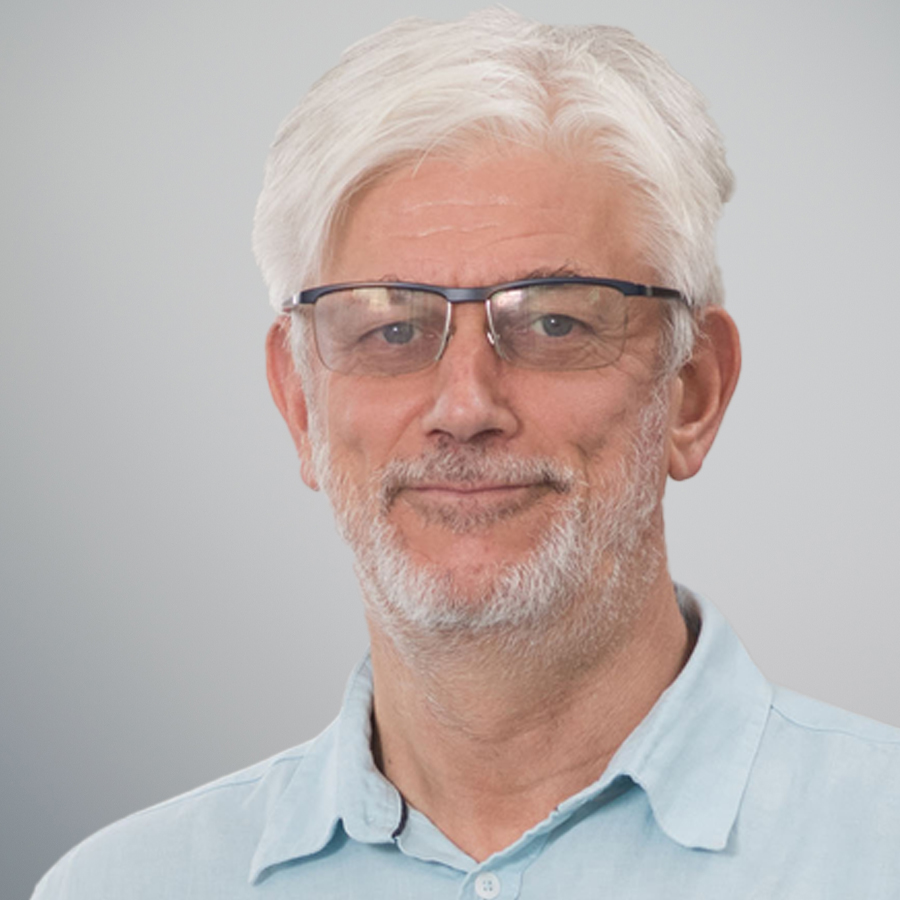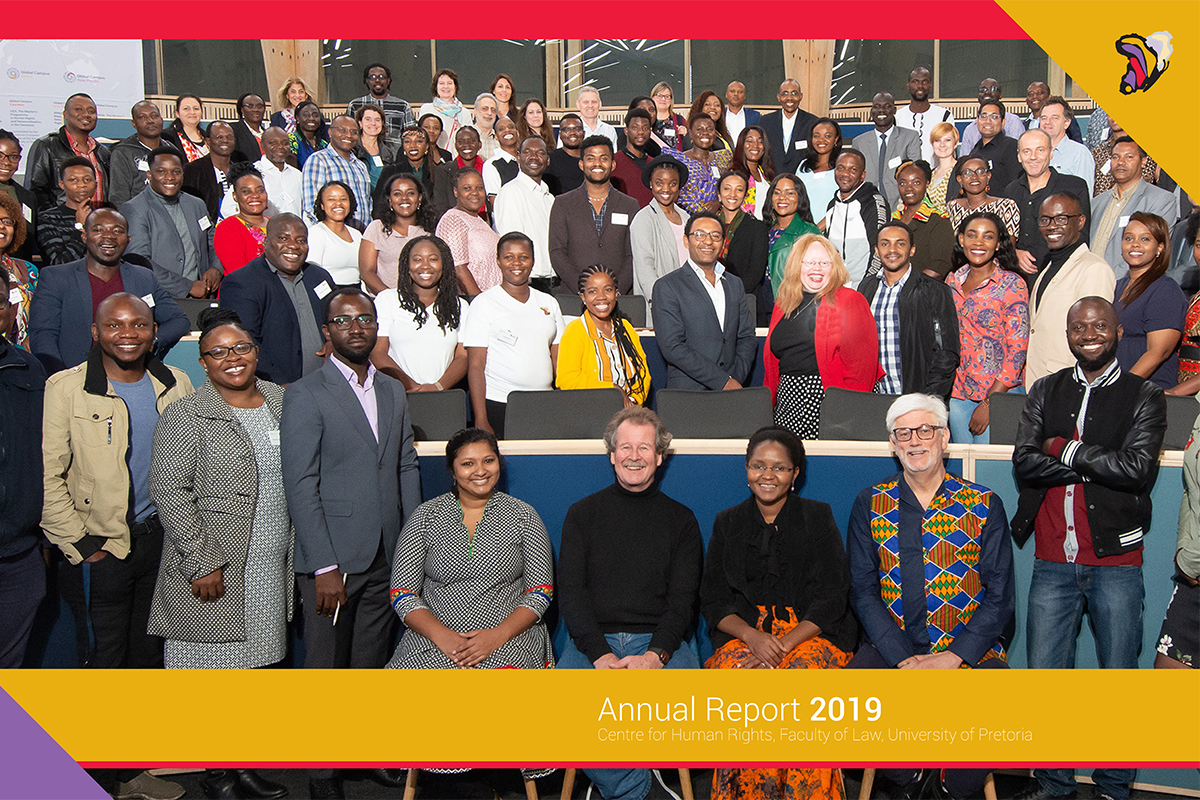In an age during which human rights are increasingly intellectually questioned, and placed under political threat, it is reassuring and important that human rights institutions still prosper. In 2019, the Centre for Human Rights forged ahead to establish itself as a credible institution advancing the rights of particularly the most vulnerable among us in Africa, and to raise levels of understanding and awareness of rights on the continent.
Exemplifying this process of institution-building, the Centre-based Master’s in Human Rights and Democratisation in Africa (HRDA) marked 20 years of continuous human rights education on the continent. It is through the wide-ranging contributions of the 563 graduates of this programme that the Centre has left its clearest fingerprint on the continent. This milestone was made possible by productive partnership with law schools across the continent, together with great dedication of Centre staff over two decades. A number of events, organised to coincide with the graduation of the HRDA Class of 2019, brought together graduates from across year groups and countries.
#HRDA20Years
In 2019, the Centre for Human Rights forged ahead to establish itself as a credible institution advancing the rights of particularly the most vulnerable among us in Africa, and to raise levels of understanding and awareness of rights on the continent. Exemplifying this process of institution-building, the Centre-based Master’s in Human Rights and Democratisation in Africa (HRDA) marked 20 years of continuous human rights education on the continent. It is through the wide-ranging contributions of the 563 graduates of this programme that the Centre has left its clearest fingerprint on the continent. This milestone was made possible by productive partnership with law schools across the continent, together with great dedication of Centre staff over two decades. A number of events, organised to coincide with the graduation of the HRDA Class of 2019, brought together graduates from across year groups and countries.
Global Campus of Human Rights
One of the reasons for the stable growth of the HRDA was the consistent financial support of the European Union. From the very start, the HRDA was embedded in a larger network of EU-supported Master’s programmes across the globe. By 2019, this network had increased to seven such programmes, coordinated under the umbrella of the Global Campus of Human Rights. The Centre was privileged to host the election of the first governance structures, and the official launch of the Global Campus of Human Rights on 10 December 2019.
DRIA
DRIAIn the same year that its oldest Master’s programme turned 20, the Centre also introduced a new programme, the Master’s in Disability Rights in Africa (DRIA), which is developed and presented in collaboration with the Department of Public Law, of the UP Faculty of Law. This was the Centre’s second Master’s programme presented by way of hybrid learning (comprising on-line and on-site (residential) teaching and learning).
TILA and SRRA
TILA and SRRAA record number of students graduated from two of the Centre’s other Master’s programmes, with 23 new graduates from the LLM in International Trade and Investment Law in Africa (TILA), and 15 with a Master’s in Sexual and Reproductive Rights in Africa (SRRA). A total of 73 Masters and 5 doctoral students graduated from the Centre in 2019.
Moot Courts
As has become regional custom, the Centre organised the African Human Rights Moot Court Competition (for the first time in Botswana); and the Nelson Mandela World Human Rights Moot Competition (in Geneva). It was a year of several milestones for the World Moot, which for the first time took place in Spanish (alongside French and English), added a new partner (Academy on Human Rights and Humanitarian Law, Washington College of Law, American University), and hosted the first Nelson Mandela Lecture, which was presented by Justice Albie Sachs (with the High Commissioner of Human Rights responding).
Conferences
The Centre hosted a number of international conferences, including the annual conference on disability rights; and a conference on forced displacement in Africa. The conference on forced displacement tied in with the theme of the Centre’s annual campaign, which in 2019 was #AfricanMigrantsMatter.
Research Units
Each of the Centre’s Units continued their excellent work in advancing a particular aspect of the rights of vulnerable groups. The highlights of these efforts are covered in the subsequent sections of this report.
Centre Staff
The Centre is its people: It is the dedication and professionalism of its staff and students that enabled the Centre to continue contributing and growing. In 2019, we saw a few dearly valued members of our staff leave. Professor Hansungule, who had established himself as a leading expert on human rights in Africa, reached retirement age. He will however still be involved in some postgraduate supervision. Josua Loots, manager of the Business and Human Rights Unit, Adebayo Okeowo, manager of the Advocacy Unit, and Damian Oakes, part of the ACCA Secretariat based in the Centre, also moved on in pursuit of new opportunities. While we will miss them, we were privileged and remain glad to have benefited so much from them, both personally and professionally. It is also gratifying and encouraging that each of them has taken up a position in which they will have the opportunity to gain more experience and make even greater contributions to the protection of human rights in Africa and beyond.
Partners, Supporters, Donors and Friends
It is also a pleasure to acknowledge the collaborative support of so many partners, supporters, donors, and ever-increasing network of friends and supporters.

Professor of International Human Rights Law
Tel: +27 (0) 12 420 3228
frans.viljoen@up.ac.za


